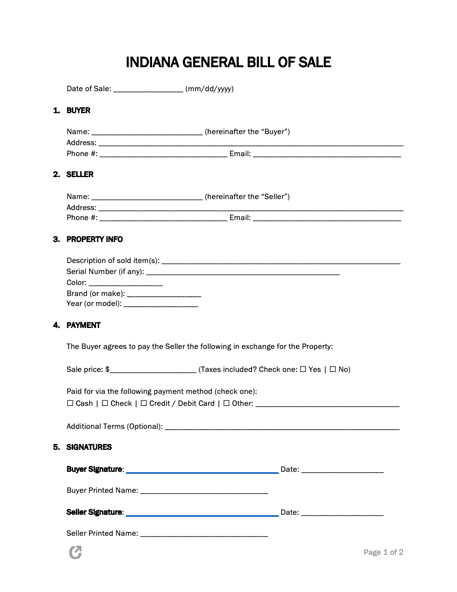Indiana General Bill of Sale Form
An Indiana general bill of sale form demonstrates the dealings between buyers and sellers. It captures the item’s basic details and both parties’ contact information. The document operates as a receipt, with its primary difference being the signature requirement. While it has similarities to a purchase agreement, it does not allow for a payment plan. Instead, the transferee must pay the transferor the agreed-upon amount immediately.
| Signing Requirements: Both parties (plus co-owners) must sign on the provided lines. |
What is an Indiana General Bill of Sale?
An Indiana general bill of sale supplies two (2) individuals with official evidence of a property’s transfer. It establishes a formal record of the purchase price and disbursement. The buyer presents the form to individuals or businesses to prove they paid another person to attain ownership. The seller acknowledges the sales agreement and verifies they received payment by signing.
Does Indiana Require a Bill of Sale?
Yes, Indiana law requires buyers and sellers to complete a bill of sale during motor vehicle and vessel transactions. Other transfers do not require a bill of sale; however, individuals often complete one as verification of the purchase.
Is a Notary Public Required?
No, Indiana does not require a notary public to sign bill of sale forms. Witnesses do not need to sign either. Although the state does not mandate it, residents choose to have the form witnessed or notarized. The seal of approval gives the document more power in the court of law.
